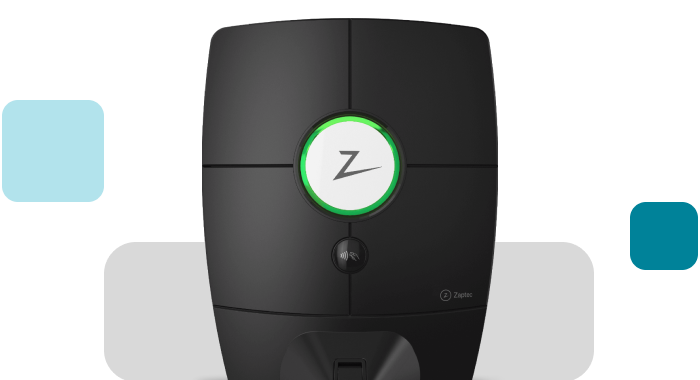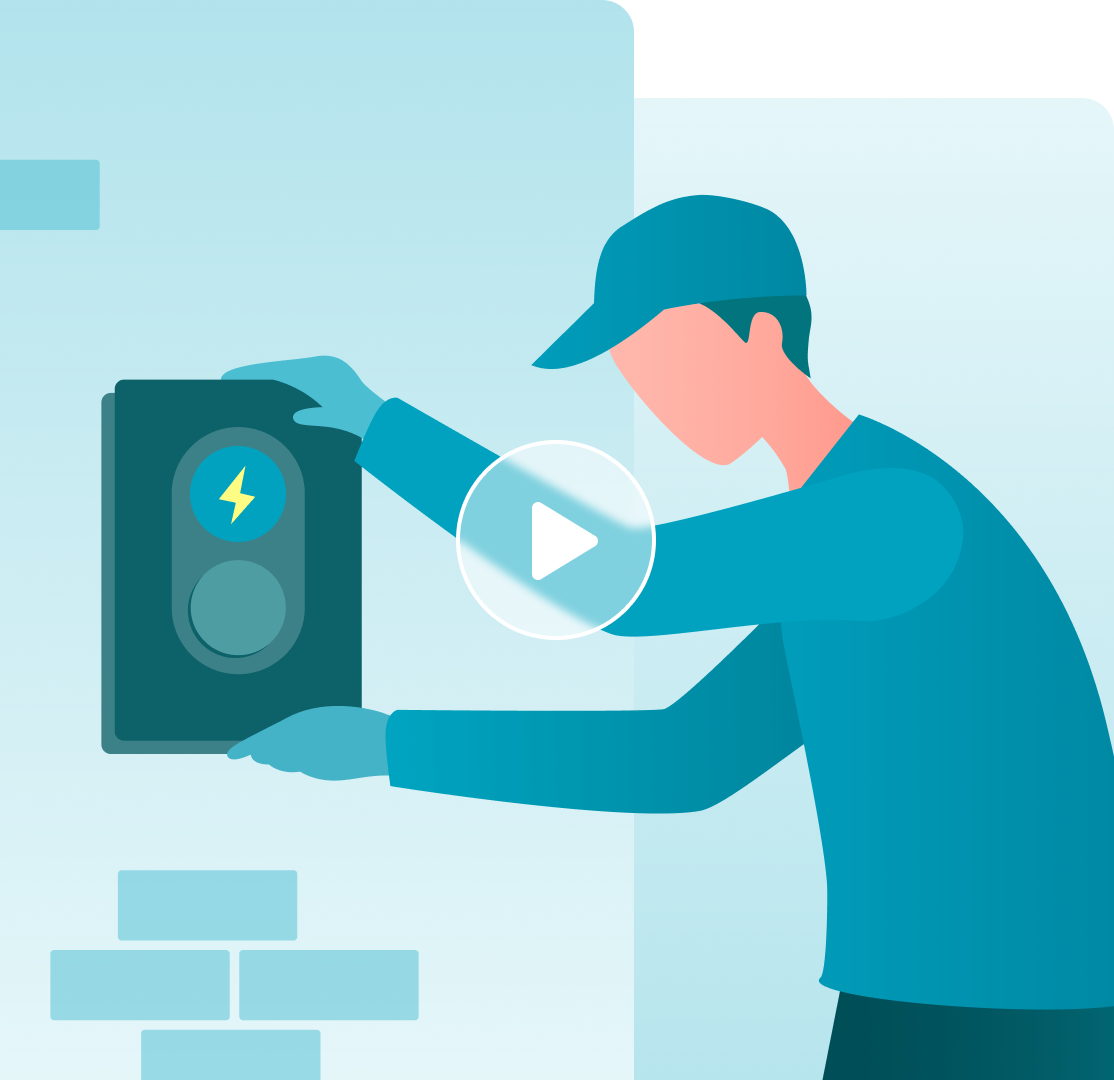
NEXT GENERATION TRAVEL
EV charge point installation from Evolo
At Evolo, our specialist EV charging solutions help you find the best EV charger for your home, install it safely, and then keep it operating at maximum efficiency.
EV hardware you can trust
Evolo, from Certas Energy, offers best-in-class charging solutions to support your transition to an electric future, keeping your vehicles on the road to net zero.
Expert service
We will help you find the best charger for your home and then look after it once it’s installed. The installers we work with are expertly trained and accredited to leading industry standards.
Compatible with all EV vehicles
Our hand-picked range of EV home chargers will charge any vehicle with a choice of 7.4-22kW AC products.
Getting your business on the road
Evolo offers all sizes of businesses an end-to-end EV solution, including installing best-in-class chargers and on the road charging solutions
How does Evolo work?
The market-leading charging equipment that we install for you is selected to ensure it is efficient and reliable. The engineers that we work with are trained and approved to install EV chargers and will fit your charger safely without mess or fuss
Evolo also installs EV chargers at offices and in other workplaces so you can charge your EV at either end of your daily commute or when you're on the road.
How do I charge my car?
Charging your electric car has never been easier with a charger installed by Evolo. Just plug in and let the charger do the rest. As the battery charges, you can feel reassured, knowing that you're taking a step towards a more sustainable future.
The typical time to charge an electric car can take as little as 30 minutes or as long as 12 hours. This depends on the size of your vehicle's battery and the speed of the charging point.
COMPARE CHARGE SOLUTIONS
Choose the charging station that’s right for your home or workplace
- Commercial charging

Zaptec Pro
Packed with state-of-the-art tech
-

Charge up to 22Kw
-

66% better utilisation of available power
-

RFID card reader
-

4G ensuring seamless communication
-

Supports Plug & Charge
-

Free management system

eVolve Smart
Charge two vehicles at full power simultaneously
-

7.2Kw and 22Kw available
-

Up to 100 mile range on 60 minute charge
-

RFID card reader
-

3G modem/ethernet connectivity
-

Internal MID certified metering
-

3 LED indicator showing fault
Access thousands of Rapid Charge locations when you’re on the road
Evolo On the Road roaming services enables your employees to charge at thousands of charge points around the country, using a card or app, with a single monthly statement and bill.
The Evolo On the Road Roaming solution can be used at thousands of charge points across the country.
END-TO-END SERVICE
We make the process easy from start-finish
Our advisors will conduct a comprehensive evaluation of your property and recommend the most suitable EV charger installation option.
-
1
Get in touch
Complete our online survey, so we know where your charger can be installed.
-
2
Book an appointment
Book a convenient appointment and make the payment.
-
3
Expert installation
An expert installer will fit and test your charger and show you how it works.
-
4
Enjoy your new system
Register your guarantee, plug in your EV and get ready to go.
Fleet Solutions
We also provide businesses with the infrastructure they need to successfully integrate EVs into their fleets, enabling them to meet their sustainability goals while also increasing their operational efficiency.

LEARN MORE
Frequently asked questions
-
The installation process for an electric vehicle (EV) charging station in typically involves the following steps:
Assessment and Planning: A professional electrician will visit your property to evaluate your electrical system and confirm instructions supplied by you are true and that the charger can be safely installed in the preferred location.
Design and Approval: It will be necessary to obtain any necessary approvals or permits from your local authority or Distribution Network Operator (DNO) and this will be completed by Evolo prior to any works being scheduled.
Electrical Upgrades: In some cases, your electrical system may need to be upgraded to support the power requirements of your EV charger. This may involve upgrading your circuit breaker, installing a new electrical panel, or running new wiring. If any upgrades are required, then these should be completed by a qualified professional electrician and you should keep all documentation for future reference.
Mounting the Charging Station: Once the profession electrician completes the survey of the property and is happy to proceed, the charging station can be mounted on a suitable location, which is often a wall near the parking space.
Wiring: The charging station is then connected to your home's electrical system via wiring.
Final Testing: After the installation is complete, a professional electrician will test the charging station to ensure that it is functioning correctly and can charge your EV safely.
Overall, the installation process can take several hours to a few days, depending on the complexity of the project and any necessary upgrades to your electrical system.
-
In the UK, the size of cable required for an EV charger installation will depend on several factors, including the power rating of the charger, the distance between the charger and the distribution board, and the type of cable being used.
For a typical 7 kW or 22 kW EV charger, a Type 2 connector is commonly used. However, the exact cable size required will depend on the distance between the EV charger and the car being charged.
It is important to note that all electrical installations in the UK must comply with the British Standard BS 7671 Wiring Regulations, and all work must be carried out by a qualified electrician who is registered with a government-approved scheme, such as NICEIC or ELECSA.
-
A tethered EV cable is a cable that is permanently attached to the charging station or EV charging point. This means that the cable is always available and does not need to be brought out separately by the EV driver. Tethered EV cables are commonly found in public charging stations, and they are often available in different lengths to accommodate different parking arrangements.
An untethered EV cable, on the other hand, is a cable that is not permanently attached to the charging station or EV charging point. Instead, the cable is connected to the charging station through a socket or port, and the EV driver needs to bring out the cable and plug it into their vehicle. Untethered EV cables are commonly used in home charging setups and are typically sold separately from the charging station.
The main difference between tethered and untethered EV cables is whether the cable is permanently attached to the charging station or not. Tethered EV cables are more convenient for public charging, while untethered EV cables are more common for home charging. Many prefer untethered EV chargers at home as it means less chance of running over the cable and can look tidier when the car is not charging.
-
The cost of a home electric vehicle (EV) charger installation in the UK can be calculated based on several factors. These include:
Type of charger: The cost of installation will depend on the type of charger you choose. There are various types of home EV chargers available in the UK, ranging from basic chargers to more advanced models with features like smart charging and connectivity. More advanced chargers typically come at a higher cost.
Location and accessibility: The location of the charger will also impact the cost. Installing a charger in a garage or on a driveway is typically less expensive than installing one on an external wall or in a more difficult-to-reach location.
Electrical system: The existing electrical system in your home may need to be upgraded to accommodate the increased electrical demand of an EV charger. This could increase the cost of installation.
Labour costs: The cost of labour will also impact the overall cost of the installation. The amount of time required for installation will depend on the complexity of the installation.
To get an accurate estimate of the cost of a home EV charger installation contact Evolo. We will be able to provide an estimate based on the specific requirements of your installation, as well as advise you on any grant options that may be available to help reduce the cost.
-
You could plug an electric car into a regular household outlet in the UK, but it's not recommended.
A typical UK household outlet is designed to supply a maximum of 3kW of power, which is not sufficient to fully charge an electric car battery overnight. Using a regular outlet to charge your electric car may take significantly longer, and may not provide a full charge. Additionally, using a regular outlet can increase the risk of electrical faults and damage to the outlet and wiring.
It's recommended that you install a dedicated EV charging point, which is designed to supply the necessary power for faster charging, and is also designed to handle the unique electrical demands of charging an electric car. Installing a dedicated charging point also ensures that you're safely and legally compliant with the UK's wiring regulations.
While you can use a regular household outlet to charge your electric car, it's not recommended. Installing a dedicated EV charging point is the safest and most efficient way to charge your electric car.
-
The power usage of a home EV charger will vary depending on the charger's power rating, the charging rate of the electric vehicle, and the amount of time it takes to charge the vehicle.
Generally, most home EV chargers are rated at 240 volts and between 30-60 amps. This means that they can provide power of up to 7.2-14.4 kilowatts (kW) to the electric vehicle.
Assuming an average charging rate of 7.2 kW, a full charge for an electric vehicle with a 60 kWh battery would take around 8.3 hours, and consume approximately 58.5 kWh of electricity.
To calculate the actual power usage, multiply the charging rate (in kW) by the number of hours the car is plugged in. For example, if an electric vehicle with a 60 kWh battery is charged using a 7.2 kW charger for 8 hours, the total energy consumed would be 57.6 kWh (7.2 kW x 8 hours).
It's important to note that different electric vehicles have different charging rates, and some home EV chargers may have different power ratings, which could affect the power usage. Additionally, electricity rates vary depending on location, so the cost of charging an electric vehicle can vary significantly.





